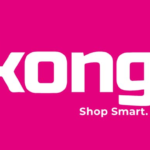More Nigerians now rely on app-based ride-hailing services for safer late-night travel, according to the latest Ride-Hailing Safety Index commissioned by Bolt. The study, conducted by global research firm Ipsos, showed that 96 percent of respondents prefer ride-hailing over buses and motorcycles when traveling at night, visiting unfamiliar places, or after drinking alcohol. The report points to a growing shift among commuters toward technology-driven mobility for safety and convenience.
Bolt, Nigeria’s largest ride-hailing company, said the study reinforces how digital mobility helps improve personal safety in urban areas. Bolt Nigeria’s General Manager, Osi Oguah, emphasized the company’s focus on safety, explaining that the findings offer valuable insights into how Nigerians perceive safety while using ride-hailing platforms. He said Bolt will continue to invest in technology, partnerships, and awareness campaigns to make every ride safe, reliable, and affordable.
The survey, carried out in Lagos, Abuja, Port Harcourt, and Ibadan, revealed that 94 percent of participants have booked rides for family or friends to ensure they got home safely. It also showed that 66 percent believe ride-hailing services have helped reduce cases of drunk driving by offering a reliable alternative to driving under the influence.
Women make up 70 percent of ride-hailing users in Nigeria, most of them between ages 25 and 34. Many respondents said they use the service several times a week, showing how much ride-hailing has become part of daily urban life.
Users identified in-app safety tools—such as real-time GPS tracking, verified drivers, and trip sharing—as key features that build trust in the platforms. Ipsos representative Stephanie Kanyiri said the findings reflect a positive trend, showing that Nigerians increasingly view ride-hailing as both a secure and convenient way to move around cities.
The Lagos State Ministry of Transportation praised Bolt for commissioning the independent research, describing it as an important step toward understanding commuter needs and improving service delivery. Oluwaseun Osiyemi, who represented the Commissioner for Transportation, said the initiative demonstrates Bolt’s genuine commitment to enhancing the overall ride-hailing experience.
Bolt said it plans to use the insights from the study to expand safety education, improve its technology, and strengthen public awareness. The company believes these efforts will continue to shape Nigeria’s urban transport system by promoting safe, digital, and efficient mobility options for all.
















